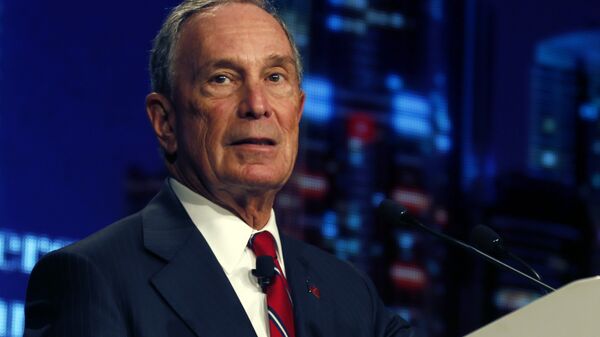The sum on ads alone is nearly as much as the $130.7 million that the four frontrunners (former Vice President Joe Biden, Sens. Bernie Sanders of Vermont and Elizabeth Warren of Massachusetts, and South Bend, Indiana, Mayor Pete Buttigieg) spent combined on their entire campaigns, including staff salaries, travel expenses, and voter-outreach efforts, from their campaign launches through the end of September.
The ads target national media markets – and according to the Washington Examiner, they are the part of Bloomberg’s strategy of skipping the first four crowded early state nominating contests of Iowa, New Hampshire, Nevada, and South Carolina in favour of focusing on March 3 “Super Tuesday” states and beyond. As someone who started later than most of the other candidates, Bloomberg is using a national strategy, rather than a state-by-state retail politics one, in which advertising is crucial for it to be successful. So far, Bloomberg has seen moderate polling success. Several recent national primary polls find him with 4% to 7% support, leaving him with a 5.5% average in RealClearPolitics’ average of national polls.
“It’s unclear what to expect because it’s a crowded field, and he’s gotten into the race so late,” said Mary Snow, an analyst for the Quinnipiac University Poll. “The question of how his massive ad spending is going to affect his campaign is being put to the test.”
A nationwide, rather than state-by-state grassroots, the strategy has previously been deployed with some success by other candidates throughout history, including President Donald Trump, who relied heavily on earned media as opposed to paid advertisements.
Spencer Kimball, director of polling and assistant professor at Emerson College, said that advertising has a “major impact” in elections.
“Just having a lot of money obviously doesn’t move the needle,” Kimball said. “But the way Bloomberg is spending his money is targeted advertising. You’re already seeing his numbers increase.”
The former New York Mayor also spent a lot to build his own campaign. According to Washington Examiner, Bloomberg is paying salaries for more than 300 staff members, 200 of which are at his campaign headquarters. Low-level Bloomberg field staff make $6,000 per month, the equivalent of $72,000 annually – about 70% more than the going rate of $3,500 per month paid by the Warren, Sanders, and Buttigieg campaigns.
Bloomberg has low approval ratings among Democrats, having been criticised for trying to buy the election. The research firm Morning Consult found that he has the highest unfavourable rating, 28%, of any candidate in the race among Democratic primary voters nationwide.


